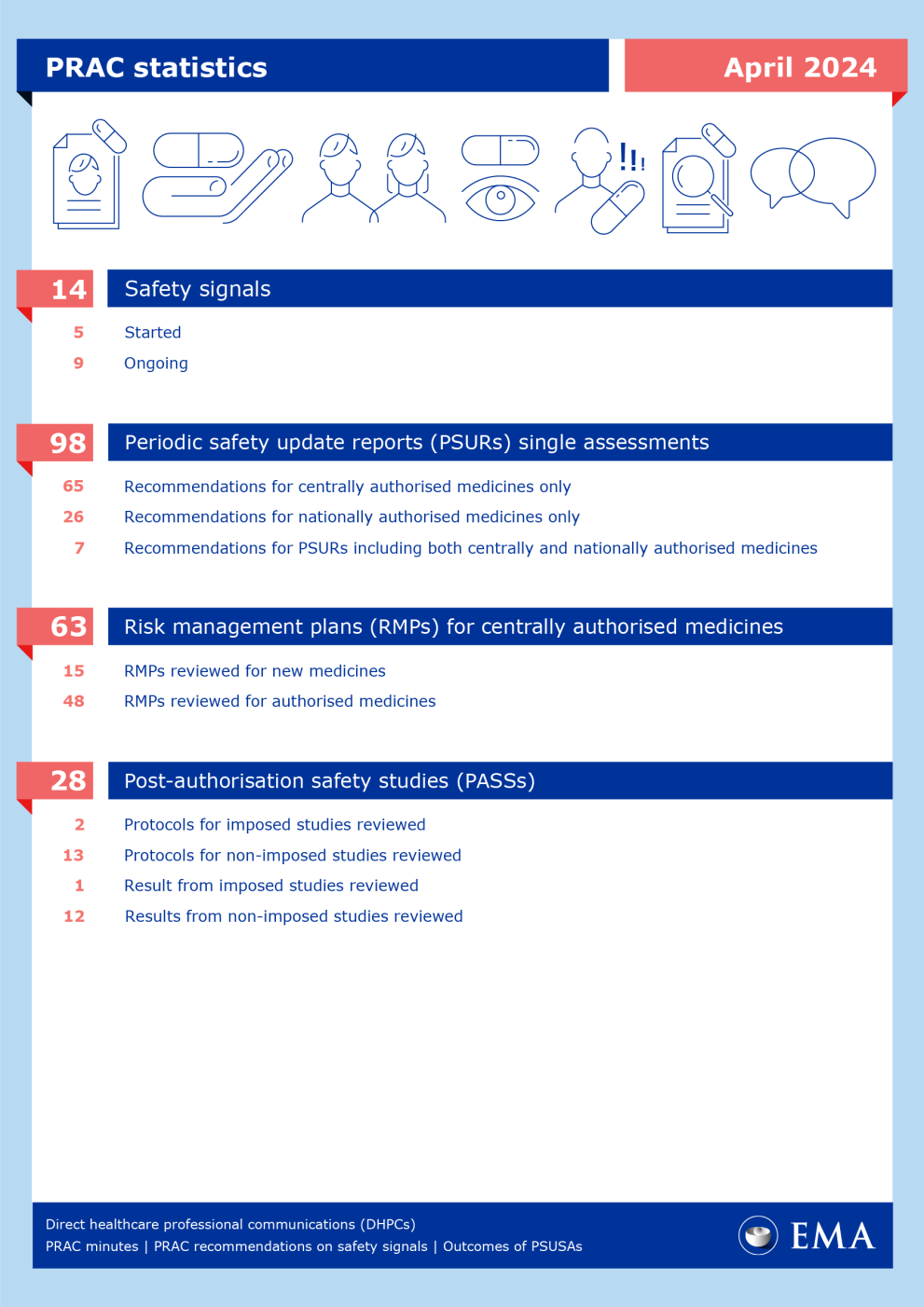
Meeting highlights from the Pharmacovigilance Risk Assessment Committee (PRAC) 8-11 April 2024
GLP-1 receptor agonists: available evidence not supporting link with suicidal and self-injurious thoughts and actions
NewsHumanMedicinesPharmacovigilanceReferrals
